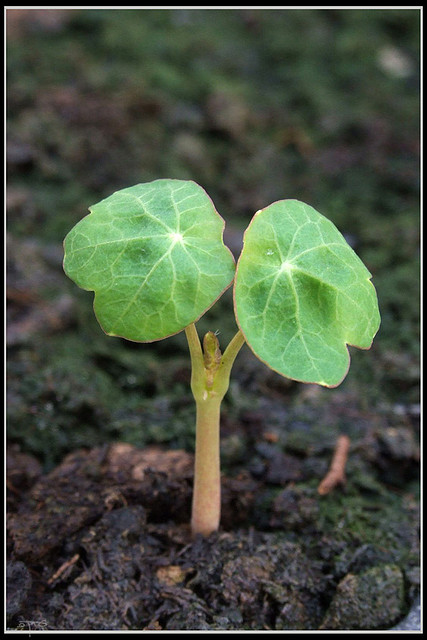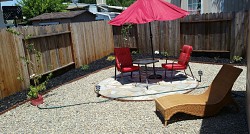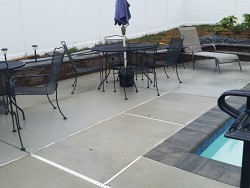Beginner Gardening Tips that Anyone Can Use
 You may have always wanted a garden, but not been quite sure you were the green-thumb type. Or maybe until now you were living in a house or apartment without an outdoor growing space. Maybe you're a parent, relative, or educator who'd like to teach your children or students the joys of raising plants … or inspire them to love eating vegetables.
You may have always wanted a garden, but not been quite sure you were the green-thumb type. Or maybe until now you were living in a house or apartment without an outdoor growing space. Maybe you're a parent, relative, or educator who'd like to teach your children or students the joys of raising plants … or inspire them to love eating vegetables.
Whatever your situation, you'll enjoy these simple, green gardening tips, based on the long experience of the most successful home gardener we know.
Just get going. Gardening can be tons of fun for kids, as well as beginners (and long timers) of any age. For your first attempt, choose seeds that are simple and foolproof to grow, yet produce amazing results. Zinnias, asters, squash, green beans, or carrots are a few examples of easy flowers and veggies. Herbs will usually sprout quickly and thrive in even the smallest space, indoors or out.
Give seeds a head start. Coddle hard seeds like morning glories or nasturtiums in the fold of a damp paper towel. Keep moist and covered for a few days until they sprout. (Yes, peeking is allowed!) Or start any type of seed in an eggshell half, pierced with a pin for drainage. Stow the eggshells tidily in their carton, keep moist, and wait for the glorious day when seedlings appear. Transfer the tiny plants to the garden -- shell, box, and all -- when they are about 2" tall.
Pay attention to where you plant. Avoid the brightest, hottest patches of your yard so delicate plants won't get scorched. And read the directions on your seed packets for important gardening tips, such as how much sun each variety likes best.
Think about a water source. Seasoned gardening mavens may need a complex sprinkler or irrigation system set up by a professional landscaper, but if you're just starting out with a handful of seedlings, a nearby outdoor faucet and a watering can are most likely all you'll need for now.
Buy bedding plants if you don't want to bother with seeds. They provide an instant garden and immediate gratification. Look for plantlets that are small, compact, and healthy-appearing rather than the biggest, tallest or showiest at the nursery. Avoid flowering plants in full bloom, opting instead for those with a few tightly closed buds. You want to save the gorgeous display for later, when they've been relocated to your own garden.
Cultivate hardiness. Brush your baby plants gently with your hands several times a day. They will respond by growing slightly more slowly, taking this time to develop stronger, sturdier stems.
Nourish your babies. The (unsalted) water in which you steamed last night's veggies or boiled your breakfast egg makes a nutritious, refreshing "tea" for young plants. (CAUTION: Cool any hot liquid prior to sprinkling on your garden.) Add nitrogen to geraniums' diet by mixing a bit of coffee grounds or tea leaves into the soil. Before you plant a rosebush, place a banana peel in the hole for extra potassium. If a horticulturalist friend gives you a cutting from one of their beautiful shrubs, stuff it into a hollowed-out potato and bury it in the ground like a bulb. Remove potato leaves as they sprout.
Laura Firszt writes for networx.com.
Updated September 12, 2018.
Looking for a Pro? Call us (866) 441-6648

Landscaping Average Costs
Landscapers Experiences

Landscaping Turns A Weed Patch Into A Great Little Zen Garden

Rock Landscaping Adds Curb Appeal To An Arizona Home



